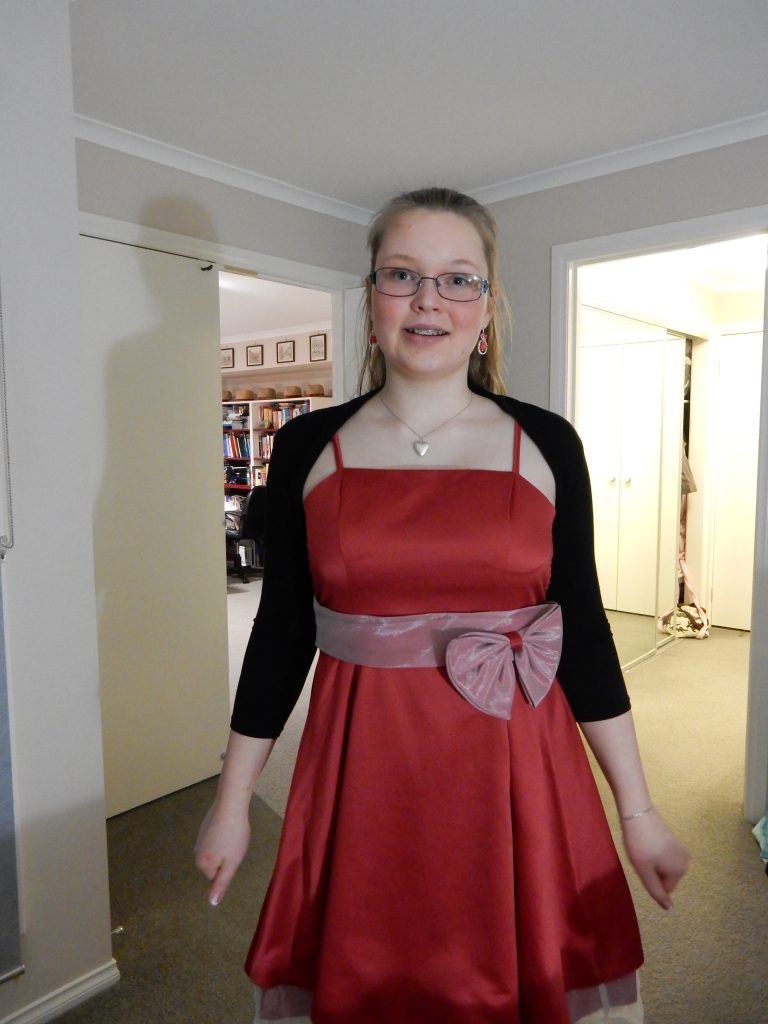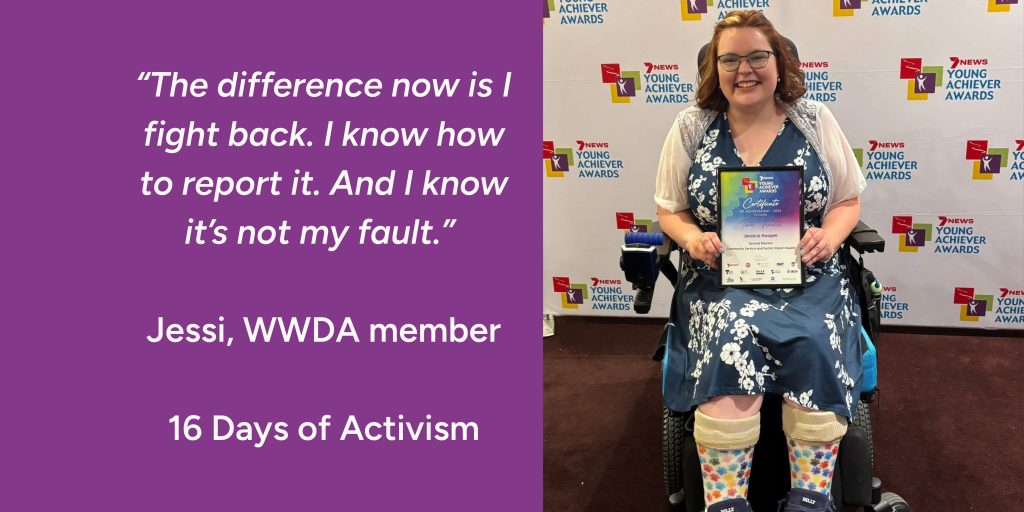Content warning: This story contains references to physical violence, online harassment and bullying that some readers may find distressing.
For Jessi, these aren’t just words, they are a reckoning.
Today, she uses her voice to advocate for inclusion, safety and accessibility for people with disabilities. She was Glen Eira Young Citizen of the Year in 2022, and she has even spoken at Parliament House in her capacity as a disability advocate. But her path to advocacy began in a place no one should ever have to start from, isolation, disbelief, and violence.
“When I was in school, I had undiagnosed autism, and Ehlers-Danlos syndrome,” she says.
“Something was always hurting, or a bone would pop out, and no one really understood what was going on.”
Her classmates – and even teachers – didn’t believe her.
“I’d always have something wrapped up in a bandage, because it was sore. Teachers would say I was making it up or doing it for attention. They thought I was lying.”
That disbelief turned cruel. Ten years ago when Jessi was 15, social media was still fairly new, and Facebook was used as a weapon against her.
“I made a Facebook account and that’s when the bullying got worse. They started commenting on every one of my posts. They said I was making up my illnesses. They told me to die.”
At her all-girls school, things escalated.
She remembers her year 10 formal. The red dress she loved, the excitement of finally choosing something for herself.
“I thought it was really cute, it had a big red bow at the front. But people posted photos and said it looked like a baby dress. They said I was fat.”
The comments spread beyond her circle of friends. Posts were screenshot and shared between year levels. Soon the taunts weren’t just online.
“I ended up getting locked into bathrooms. There was one point where they tried pushing me in front of a train. It started as verbal abuse, then intensified online, and then became physical.”
School didn’t step in. “The teachers thought I was fragile,” she says quietly. “I was told to brush it off, sticks and stones, you know? But words do hurt. I had no one supporting me.”
By her final year, the trauma had taken its toll. “I stopped eating for weeks. Teachers had to sit with me to watch me eat. I was so depressed. I was suicidal.”

Jessi graduated, deleted her Facebook account, and blocked every person from her past.
“I thought, thank goodness I never have to see anyone from high school again.”
At university, she started fresh, and for the first time, began to understand her diagnoses. “I found out I had EDS, a heart condition, autism. Everything finally made sense.”
That knowledge became her turning point.
When the world went online during COVID, Jessi found her community. “I actually loved that time,” she laughs. “I got to connect with people again. I joined disability groups, started advocacy pages, met friends. I started my work online. For the first time, I felt understood.”
Now, she uses those same online spaces to drive change. She’s advocated on a broad range of topics, from public transport access to hidden disability awareness, to accessible Christmas lights, and now she’s speaking up about the realities women with disability face online.
But even as an advocate, Jessi still faces digital violence.
“People still comment on my posts, usually men, saying awful things about my disability. On dating apps, I got sexualised comments just for using a wheelchair. They’d never say it in person, but they say anything online.”
“The difference now is I fight back. I know how to report it. And I know it’s not my fault.”
Jessi believes real change starts with education.
“I think schools need to teach about disability and online safety early, especially hidden disabilities. And adults need it too. We need to educate people about what’s appropriate, about how to treat others online.”
Her message is clear:
“We need education. We need acceptance. We need people to understand that we’re not going anywhere. We’re allowed to be ourselves. And we deserve to be safe online.”
This 16 Days of Activism, Jessi’s story is a reminder that digital spaces can both harm and heal, but when women with disabilities are heard, believed and visible, real change begins.
Video: Jessi speaking on how schools and educators can support students facing bullying and harassment online.

